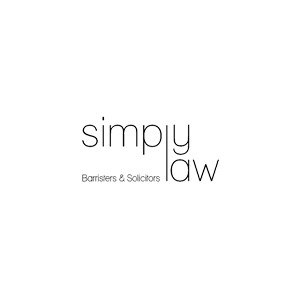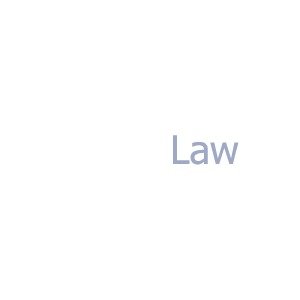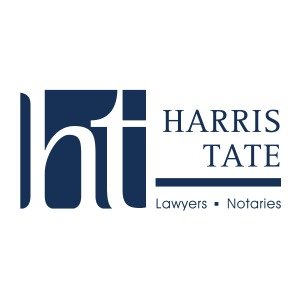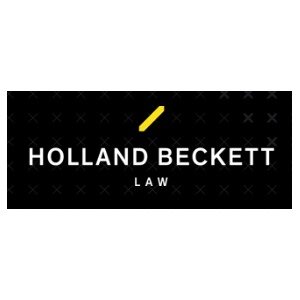Best Sanctions & Export Controls Lawyers in Tauranga
Share your needs with us, get contacted by law firms.
Free. Takes 2 min.
List of the best lawyers in Tauranga, New Zealand
About Sanctions & Export Controls Law in Tauranga, New Zealand
Sanctions and export controls are legal measures that regulate international trade and the movement of goods, technology, and services to and from New Zealand. In Tauranga, as in the rest of the country, businesses and individuals must comply with laws that are in place to uphold New Zealand's foreign policy objectives, support international security, and prevent illegal or harmful trade. Tauranga, being an economic and port hub in the Bay of Plenty, often interacts with these legal frameworks in commercial and shipping contexts.
Why You May Need a Lawyer
Legal assistance can be crucial in several situations involving sanctions and export controls:
- If you operate a business that exports goods, services, or technology subject to controls.
- If your company is involved with clients, products, or regions that may be subject to international sanctions.
- If you are uncertain about your obligations under New Zealand or foreign sanctions regimes.
- If your goods have been detained at the border or you are facing investigations by customs officials.
- If you receive notice of a possible breach or are subject to an audit of your export activities.
- If you want to ensure compliance systems and risk management for your business supply chain.
- If you are acquiring or merging with another business that trades internationally.
- If you face penalties or need to make disclosure to authorities arising from inadvertent non-compliance.
Local Laws Overview
New Zealand's sanctions and export controls system is shaped by government policy, international obligations, and local enforcement. Some of the key aspects include:
- United Nations Sanctions: New Zealand implements UN Security Council sanctions through the United Nations Act 1946. Prohibited activities may include trade, asset freezes, and restrictions on dealings with named individuals, groups, or countries.
- Autonomous Sanctions: The Autonomous Sanctions Act 2010 enables New Zealand to impose its own restrictions outside the UN framework, often for foreign policy reasons.
- Export Controls: The Customs and Excise Act 2018 and Export Controls Regulations require permits for certain goods, especially military items, dual-use goods, nuclear materials, and some advanced technologies. The Ministry of Foreign Affairs and Trade (MFAT) administers these controls.
- Local Port Enforcement: As a major export port, Tauranga's customs officers and port authorities play a significant role in identifying, detaining, or investigating suspicious shipments and enforcing compliance with export control regulations.
- Penalties: Breaches of sanctions and export controls can result in severe penalties, including fines and imprisonment. Regulatory investigations and prosecutions may cause significant business disruption.
Frequently Asked Questions
What are economic sanctions?
Economic sanctions are legal restrictions imposed by governments to influence or restrict trade and transactions with certain countries, entities, or individuals, usually to achieve foreign policy or security objectives.
What is meant by export controls?
Export controls are legal requirements that govern the transfer of specific goods, technology, or services out of New Zealand. They often apply to military, dual-use, or sensitive items.
Who enforces sanctions and export controls in Tauranga?
Customs New Zealand and the Ministry of Foreign Affairs and Trade (MFAT) are the primary enforcement bodies. Local customs officials at Tauranga Port have direct involvement in inspections and compliance.
What are the legal consequences of breaching export controls?
Breach of export control laws can lead to prosecution, substantial fines, forfeiture of goods, and even imprisonment, depending on the nature and severity of the violation.
Do all exports from Tauranga require a permit?
No, only certain controlled goods require a permit. This includes military and dual-use items or goods subject to specific sanctions or international obligations.
Can sanctions change over time?
Yes, sanctions are updated regularly based on international developments, UN Security Council decisions, and changes in New Zealand government policy.
How can I check whether an export is subject to restrictions?
You can consult the MFAT and NZ Customs websites or seek professional legal advice to assess if your goods, services, or destination are restricted.
What should I do if my shipment is detained in Tauranga?
If your goods are detained by customs, contact a lawyer experienced in export controls immediately to understand your rights, compliance issues, and possible remedies.
Is there a process for self-disclosure if I suspect a breach?
Yes, you can voluntarily disclose potential breaches to MFAT or Customs. Legal advice is recommended to manage the process and mitigate liability.
Are there specific risks for Tauranga businesses?
Tauranga's role as a port city means local businesses face more exposure to customs inspections and must be especially vigilant about compliance, training, and up-to-date internal controls.
Additional Resources
If you need further information or help, the following resources and organizations are valuable:
- Ministry of Foreign Affairs and Trade (MFAT) - provides up-to-date export control guidance and contact points for licensing and advice.
- New Zealand Customs Service - offers information on compliance, export procedures, and enforcement.
- New Zealand Law Society - find registered legal professionals with expertise in international trade law.
- Business New Zealand - offers guidance for exporters and connections to relevant compliance resources.
- Bay of Plenty Regional Council - local authority with business support and risk information relevant to exporters in Tauranga.
Next Steps
If you require legal assistance with sanctions and export controls in Tauranga:
- Contact a lawyer with experience in international trade and export controls law. Seek someone familiar with local port and business practices.
- Gather any relevant documentation about your business activities, exports, communications with authorities, and any notices or correspondence received.
- Be prepared to discuss your business operations and supply chain management to help your lawyer identify compliance issues.
- Stay informed of updates by subscribing to notices from MFAT, Customs, or business organizations.
- Consider conducting a risk assessment or compliance review if you export regularly through Tauranga.
Lawzana helps you find the best lawyers and law firms in Tauranga through a curated and pre-screened list of qualified legal professionals. Our platform offers rankings and detailed profiles of attorneys and law firms, allowing you to compare based on practice areas, including Sanctions & Export Controls, experience, and client feedback.
Each profile includes a description of the firm's areas of practice, client reviews, team members and partners, year of establishment, spoken languages, office locations, contact information, social media presence, and any published articles or resources. Most firms on our platform speak English and are experienced in both local and international legal matters.
Get a quote from top-rated law firms in Tauranga, New Zealand — quickly, securely, and without unnecessary hassle.
Disclaimer:
The information provided on this page is for general informational purposes only and does not constitute legal advice. While we strive to ensure the accuracy and relevance of the content, legal information may change over time, and interpretations of the law can vary. You should always consult with a qualified legal professional for advice specific to your situation.
We disclaim all liability for actions taken or not taken based on the content of this page. If you believe any information is incorrect or outdated, please contact us, and we will review and update it where appropriate.

















